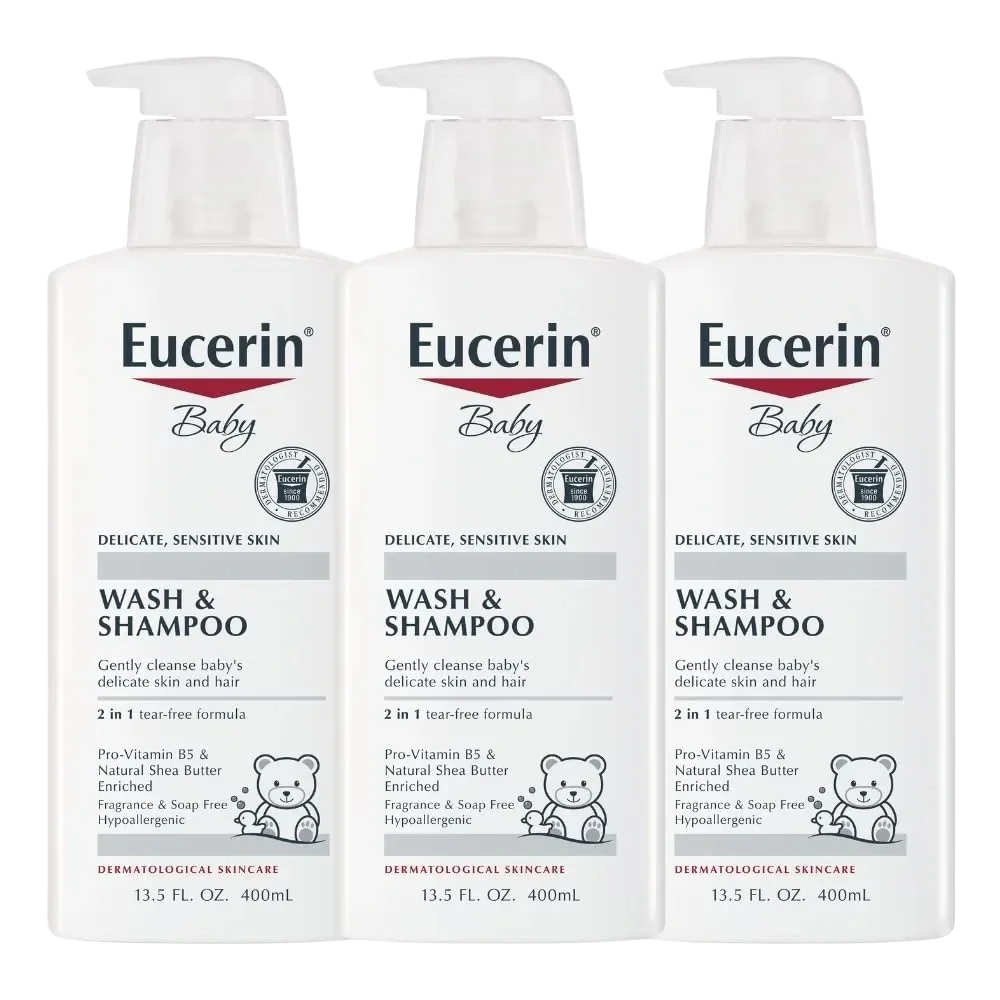Eucerin Baby WASH & SHAMPOO
shampoo & bodywash & conditioner • For 5+ year old children • Skin contact 🧴
Product Images
Product Photo

Tap to enlarge
Ingredient List

Tap to enlarge
Is this kid-friendly to use Eucerin Baby WASH & SHAMPOO?
Check for Different Age (6 available)
Ingredients Analysis (11 found)




Common Questions About Eucerin Baby WASH & SHAMPOO
Kid-approved? Eucerin Baby WASH & SHAMPOO
Yes, Eucerin Baby WASH & SHAMPOO is generally considered safe for 5+ year old children based on ingredient analysis.
What ingredients should I watch out for?
We analyzed 11 ingredients in Eucerin Baby WASH & SHAMPOO. 11 safe. Check the detailed analysis above for specific concerns.
When can kids start using shampoo & bodywash & conditioner?
The appropriate age depends on the specific ingredients. This analysis is for 5+ year old children. Use the age selector above to check other ages.
⚠️ Important Disclaimers
Product Recognition: Product names are identified programatically and may be incorrect. Always verify product identity yourself.
Safety Analysis: Evaluations are for research only - consult pediatricians for medical decisions. Do not rely solely on this analysis.
No Guarantees: Results may be incomplete or inaccurate. Do not rely solely on this analysis.